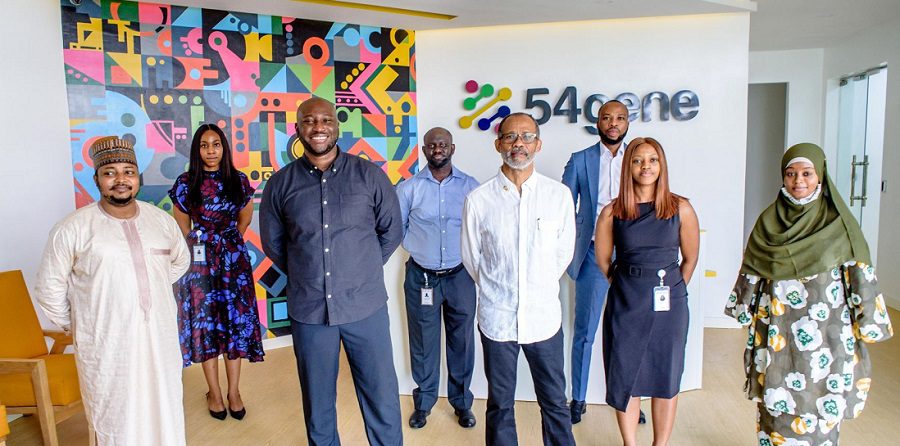News filtered out a little over a week ago that Dr Abasi Ene-Obong, the brain behind the rarity that 54gene came to represent; a venture capital-backed African biotech firm, has resurfaced with a new biotech consultancy, Syndicate Bio, following his exit from 54gene.
Questions and rumours have trailed the departure of 54gene’s founder Dr Ene-Obong since it emerged almost a year ago and, following the emergence of Syndicate Bio, there was yet more chatter on social media, some of them from insiders, alluding to the end of the road for 54gene.
This, as TechCabal reported Wednesday, has turned out to be the case. Ron Chiarello, the latest CEO at the much-changed 54gene, confirmed that the once-celebrated startup is shuttering. Its demise comes after a relatively short existence laden with highs that stakeholders suggest also yielded problems that ultimately cratered the company.
“It’s messy. Plenty of lawsuits and all kinds of fraud allegations,” one insider with knowledge of the matter told WT, alluding to internal and external troubles that stifled 54gene and led to its demise. Dr Ene-Obong’s reign as CEO of 54gene ended in October 2022 with the founder leaving under a cloud, amid what insiders describe as a misalignment of ideas that caused a rift at the top.
“Synergy was lacking, not everyone was onboard with the sort of spending 54gene undertook when they opted to also dive into diagnostics after Covid, in addition to the primary operation which is quite capital-intensive on its own,” said a source close to the company, preferring not to be identified. “There was a difference of opinion among stakeholders as to whether it was a clever diversification or a wasteful deviation.”
Early wins
Dr Ene-Obong along with co-founders Ogochukwu Osifo, Damilola Oni, and Gatumi Aliyu, launched 54gene in Nigeria in 2019 to address the neglect of African natives in global genomics research, setting out to build the authoritative biobank of the African genome.
The audacious goal was to turn 54gene into a vast repository of researched genomic data of some of the most genetically diverse groups, such as Africa which constitutes a small fraction of genetic material used in pharmaceutical research.
Upon closing a USD 25 M Series B in September 2021, Dr Ene-Obong, said the new capital will advance plans for “an African global drug discovery company that leverages the deep insights found in genomics research in diverse populations and ensures true equity for the African population.”
The startup’s business model was essentially a long-term play that could see it collaborate with pharmaceutical giants to develop better medicines and potentially draw a windfall that would give investors a sizeable return.
The underlying motivation for these projects is that Africa remains far behind other parts of the world in genetics research, as Quartz Africa previously reported. “Only 2 percent of data used in available genome-wide association studies are of African ancestry, alongside the fact that less than 1 percent of global drug discovery occurs on the continent. Yet, African genomes are the oldest and most diverse in the history of humanity.”
Backed by notable investors including Adjuvant Capital and Y Combinator, 54gene raised over USD 45 M, investing heavily in facilities, equipment, and personnel capable of, among other things, whole human genome sequencing, considered the first of its kind in Africa.
At its peak, its biobank, described as state-of-the-art in some quarters, reportedly amassed over 200,000 unique human samples and corresponding genomic data.
Boom and bust
Expansion into a few other African countries also happened, as did poaching of top talents from prominent firms which didn’t come cheap.
The considerable cost of these feats—captured somewhat by earlier reporting by TechCabal which conveyed that a piece of biotech equipment could cost up to USD 1 M and a single sequencing procedure can cost around USD 700.00—saw 54gene burn through capital quickly. The startup was to haemorrhage money even faster when it diversified into diagnostics, apparently in an effort to tap new growth frontiers.
